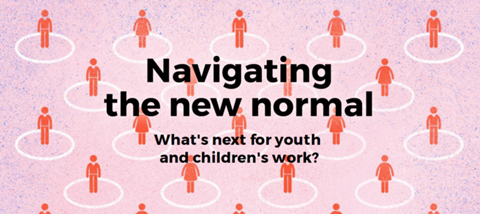
Two things are certain in the internet age: firstly, if you hold any opinion on any subject or any view of the world, no matter how ridiculous, you are certain to find at least one kindred spirit online who shares your perspective. Secondly, you will also be sure to find somebody who believes that your point of view is the most cretinous and indefensible position imaginable, and they will find you and tell you just that.

During the first few months of the COVID-19 pandemic, we have seen this manifested more clearly than ever. If there is an opinion that you are looking to see reinforced about what will happen, when and how this will end, and how the world might change as a result, you absolutely can find that online. And if you want to find someone who thinks that idea is ridiculous, you’ll also be able to find that voice. There are those who think we’ll be ‘back to normal’ in a month; there are others who believe that we’re basically entering a new ice age. What conclusion can we draw from this phenomenon? That honestly, no one has any idea how this is going to go.
Foolish is the writer then, who attempts to speak with any certainty into what kind of world might be facing us in the months ahead, and how we might seek to respond to it. And yet...this is the brief I was given. Please, take this opening disclaimer: a hefty pinch of salt that should flavour everything that comes after. I am as informed and trustworthy on this subject as the next self-proclaimed expert. Ultimately, not very.
That said, while I think there are some things that we can’t be sure of, we can be sure that 2020 will never be forgotten because the impact of the virus will inevitably create some lasting effects on our economies, our families and our general way of life. Some of these might be quite positive, while others will manifest as significant and long-lasting problems. We can be sure that the coming months will mean some enforced, rather than just improvised changes to our youth and children’s work practice; and we can be absolutely sure that some things will happen that none of us saw coming.
Based on all the available evidence of what we can probably take for granted about the next few months, here are seven thoughts about the questions that youth and children’s leaders are going to have to address as we emerge from lockdown. Rather than try to make accurate predictions of what exactly I think might change or be banned or permitted, I’m proposing these more as starting points. This is some food for thought for you and those you work with, as you try to figure out what your ministry will look like in the next few months.
We are going to have to figure out what socially distanced youth and children’s work looks like
The two-metre rule, brilliantly expressed by the Prime Minister in the last few days as the width of three fridges, may define the next few months for us. Since the beginning of lockdown, many of us have been waiting and hoping for a time when we might be able to meet with a group of young people again, and it seems like that moment may not now be too far away. But when we can meet, we will have to observe social distancing – ruling out a host of activities that many youth and children’s workers would consider staple fare. We’re going to need to dig deep to think of games, activities and even ways of gathering in limited space which don’t cause us to fall foul of the three-fridge rule. For some groups, this will make physical meeting altogether impossible in the short term. Much in the same way as schools are doing, we might need to divide groups into ‘pods’, where a group of children and leaders are grouped together and then can’t meet with the rest of the group.
Perhaps one silver lining to this transition is that many of us have already had to run online groups in much this way; dividing into a manageable size, and devising activities which can be played without any physical touch between participants.
We might need to think smaller
We cannot aim – at least in the short term – for numerical growth. We will actually need to keep strict limits on numbers involved in groups, and this could lead to some difficult situations. Imagine being the last young person to turn up for a group, and being told that your attendance takes the group over the allowed number. Setting limits on group size will be counter-intuitive, but if we don’t consider it, we could be left turning young people away. We have to go on this journey with young people, especially as restrictions are lifted in other areas – our ministries could be one of the last places to get back to normal! Helping them adjust to the changes in the groups they’ve been used to for years will be crucial.
For now, we find ourselves in the unusual position of wanting to keep numbers manageable, and relieving us of the constant imperative to try to grow things might actually focus on what many of us preach, but few practise: truly focusing on those in front of us.
We will need to pay attention to young people’s mental health and emotional well-being
Mental-health experts are warning that experience of living through 2020 could have a catastrophic impact on the emotional well-being of a generation of young people. Some have been unable to take exams for which they have studied for 18 months. Others have been locked at home away from friends and teachers with no idea when they might see either again. Many teenagers may be facing a 20-week break from school, while also being left at home for long periods by working parents. Adolescence is a confusing period for everyone, but the additional stress brought about by COVID-19 will mean that this generation experience it in a completely unique way. As youth workers we find ourselves in a unique and vital position in the lives of these young people, where we may be best-placed to help them navigate the immense emotional impact of these times. In fact, as much as they need Jesus to help them in this and every other stage of their lives, it may be that traditional discipleship needs to play second fiddle for a while to a focus on holistic well-being.
Really caring about young people’s primary needs in this time might demonstrate the love of God to them far more than following up to make sure they’re still keeping up their Bible reading. Youth leaders might also want to take the opportunity now to make sure that they and their team are well briefed, trained and resourced in this area.
We’ll need to help them to reflect on the experience that they have all just gone through, and we may need to think through some answers to some very big questions
The No Questions Asked report published by the Youthscape Centre for Research in 2018 concluded that many young people no longer feel and verbalise the traditional apologetics questions about God, faith and the meaning of life, and many of us will identify with this in our experience. However, when young people experience trauma or crisis, those big questions are much more likely to surface. There are many indications that the unsettling nature of the coronavirus pandemic has caused a number of people to reflect on these questions – witness the increased googling of prayer etc – and this will also be true in the children and young people with whom we work.
Peter’s famous call to “always be prepared to give an answer to everyone who asks you to give the reason for the hope that you have” (1 Peter 3:15) may never have been more relevant in our lifetimes. While none of us can expect to become world-class apologists overnight, we might want to think a bit in advance about how we would answer some of the big questions about what is happening in our world (and why), before a child or young person asks us.
More than ever, this is the time for unity
During the last few months there has been some amazing unity demonstrated both between individual churches, and the organisations that seek to serve them. Instead of trying to compete with or duplicate one another’s work, there have been some great examples of people signposting to each other’s work and finding new opportunities to work together in their local area (and beyond). In the time that follows – with financial restrictions a constant concern, but plenty of opportunity to serve – this precedent must continue. It’s important to dedicate some time now to what that looks like for us.
We might play a part in helping families not to try to rush back to ‘normality’
Depending on how quickly we are able to exit a world of severe social restrictions, many people may well try to reclaim everything that went before. But if there is one thing that we have all learned in this time, it’s that forcing ourselves to slow down and abstain from certain habitual pursuits is actually pretty good for us. Many families are spending much more quality time together. Having been told that they could only exercise once a day, many people decided they actually would exercise once a day! As these restrictions are lifted, we will have a prophetic voice to bring to families about not losing some of the good habits and lessons we learned during lockdown.
Martin Saunders is director of innovation at Youthscape. This article is from the first issue of Youth and Children's Work digital - to read more, visit the web app or download the YCW App via the Google Play or App Store.






































